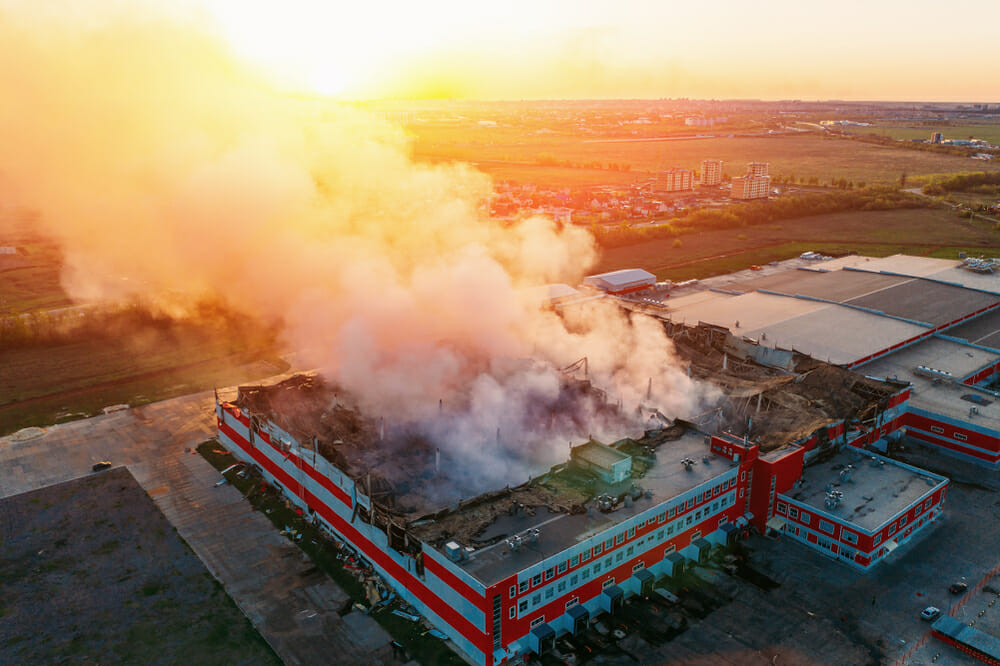Introduction
Struggling to navigate the complex insurance claim process after a property damage incident? As property owners, you may feel a sense of confusion and frustration when dealing with unfamiliar terms, large amounts of paperwork, and the judgment of your claim’s value. This can be particularly overwhelming when simultaneously managing damage repairs or possible relocation. The solution to your problem may lie in comprehending the role of a critical player in the process – a property field adjuster.
Brief Overview of the Role of a Property Field Adjuster
Every insurance claim for property damage is accompanied by an investigation directed by a property field adjuster. Essentially, these professionals visit the insured property, where their job includes collecting detailed information and inspecting the damage. Their analysis and decisions dictate the outcome in terms of coverage and payouts. However, the path to a fair settlement is not always smooth, and understanding their role is crucial.
Importance of Property Field Adjusters in the Insurance Industry
Property field adjusters represent a cornerstone of the insurance industry. They bridge the gap between policyholders and insurance companies, making sure claims assessment is accurate and fair. They hold the scales of justice in the insurance claims process, with the capacity to significantly influence both the payout amount and the length of the claim process. Their specialized knowledge and skills help ensure the process is navigated effectively and equitably.
Here’s a quick snapshot of a property field adjuster’s role and responsibilities:
- On-site Investigation: They visit the damaged property to assess the situation.
- Claim Evaluation: They collect relevant details and evaluate property damage to ascertain the extent of coverage.
- Decision-Making: Based on their assessment, they decide on coverage and payouts.
- Stress Management: Their job can be demanding, requiring them to manage multiple cases simultaneously and work under pressure.
In the infographic below, you will gain a clearer understanding of the value property field adjusters bring to the insurance claim process.

Understanding the Role of a Property Field Adjuster
To properly understand the significance of a property field adjuster, delve into their duties and responsibilities, the skills required for the role, and what a typical day in the life of a field adjuster looks like.
Job Duties and Responsibilities
A property field adjuster is a critical figure in the insurance claim process, acting as the bridge between policyholders and insurance companies. They are primarily responsible for investigating insurance claims on-site and making decisions about coverage and payouts. Their job often takes them to the insured property, where they gather information, inspect damage, and determine the amount the insurance company should pay.
They play a crucial role in examining damaged properties, interviewing the claimant, and meticulously documenting every aspect of the claim to negotiate effectively. In their work, they interact directly with policyholders, ensuring that their interests are represented, especially when dealing with insurance companies where the adjuster’s role can significantly influence the potential payout of an insurance claim.
Skills and Qualifications Required
To be successful in this role, a property field adjuster requires a specific set of skills and qualifications. They must possess a deep understanding of the insurance industry and be able to interpret complex insurance policy language. Strong communication and negotiation skills are also essential, as they will often need to negotiate with insurance companies for fair payouts.
A property field adjuster must also be meticulous, with strong attention to detail, to accurately document each aspect of a claim. This role also requires problem-solving skills as adjusters need to determine the extent of damage and calculate the amount of loss.
The Day-to-Day Life of a Property Field Adjuster
The life of a property field adjuster can be challenging and rewarding. Their day typically involves traveling to different properties to assess damage and gather information about insurance claims. They may have to handle multiple cases at the same time and often need to make quick decisions under pressure.
Despite the stress and pressure, the role of a property field adjuster can also be satisfying. They can directly help policyholders navigate the often confusing and stressful insurance claims process, ensuring they receive a fair and prompt settlement. At Insurance Claim Recovery Support, our adjusters are committed to prioritizing the interests of the policyholder and securing a fair claim settlement.
In conclusion, the role of a property field adjuster is multifaceted and challenging, requiring a range of skills and abilities. However, with the right training and dedication, it can be a rewarding career path, with the opportunity to make a significant difference in the lives of policyholders navigating the complexities of the insurance claim process.
The Path to Becoming a Property Field Adjuster
Embarking on a career as a property field adjuster involves several stages of preparation, including meeting certain educational requirements, getting the necessary certifications and licenses, and undergoing specific training programs. Here, we will shed some light on these steps and offer some tips to help you navigate this path successfully.
Educational Requirements
The educational requirements for aspiring property field adjusters are generally quite flexible. In most cases, holding a high school diploma or its equivalent is deemed sufficient. However, having a degree in insurance, finance, or a related field can provide an added advantage. What truly sets successful property field adjusters apart is their comprehensive understanding of insurance policies, regulations, and claim handling procedures.
Necessary Certifications and Licenses
As it pertains to certifications and licenses, requirements can vary by state. In Texas, for instance, individuals aspiring to become adjusters must pass the Texas All Lines Insurance Adjuster exam. This exam tests knowledge on a range of insurance-related topics, making it beneficial for candidates to undertake specific insurance adjuster classes to prepare. These classes equip future adjusters with key insights and skills, transforming competent candidates into industry-defining experts.
Field Adjuster Training Programs
Training programs for field adjusters typically cover a wide range of topics, including estimating property damage, understanding insurance policies, and learning how to negotiate claims. These programs not only equip adjusters with the necessary technical skills but also help them develop the interpersonal skills needed to interact with policyholders effectively.
At Insurance Claim Recovery Support, we understand the importance of thorough training and preparation for property field adjusters. Our team of public adjusters effectively navigate these complexities, ensuring that policyholders achieve a fair and prompt settlement. We believe that engaging a good public adjuster at the beginning of a claim is the best time, especially if the claim is a partial loss, large, or complex.
In conclusion, embarking on a career as a property field adjuster requires a combination of education, licensing, and a deep understanding of insurance policies and regulations. With the right preparation and commitment, you can navigate this path successfully and make a significant difference in the lives of policyholders.
Compensation and Career Growth for Property Field Adjusters
The compensation for a property field adjuster can vary significantly depending on their location, experience, and the type of claims they handle. Career advancement opportunities are also diverse, with the potential to move into more specialized roles or even become an independent adjuster.
Average Salary of a Property Field Adjuster in Texas
In Texas, a property field adjuster can expect an average salary of $64,240 per year, according to recent data. However, the top earners in this field can make up to $90,244 annually, demonstrating the potential for high income in this career. These figures can vary based on factors such as experience, specialization, and the complexity of the claims handled.
Highest Paying Jobs in the Field
While the role of a property field adjuster can be lucrative, there are other roles within the field that can command even higher salaries. For instance, Damage Inside Adjusters and Damage Recovery Specialists can earn between $50,500 and $100,000 per year. Auto Damage Estimators and Independent Insurance Adjusters are also among the highest paid in the field. These roles typically require a higher level of expertise and specialization, which contributes to their higher compensation.
Career Advancement Opportunities
The field of insurance adjusting offers numerous avenues for career advancement. With experience and additional training, a property field adjuster can move into more specialized roles, such as dealing with specific types of damage like fire or storm.
Additionally, becoming an independent insurance adjuster can offer greater flexibility and earning potential. Independent adjusters work for themselves, allowing them to take on a variety of claims and potentially earn higher fees.
At Insurance Claim Recovery Support, we believe in continuous learning and development. We encourage our adjusters to stay up-to-date with the latest industry practices and regulations through continuing education. This commitment to expertise is not only crucial for career advancement but also for ensuring the best possible outcomes for our clients.
In conclusion, the career of a property field adjuster is not only rewarding in terms of helping policyholders navigate their claims, but it also offers a competitive salary and diverse opportunities for career growth. Whether you are just starting out or looking to advance in your career, the field of insurance adjusting presents exciting possibilities.
The Challenges and Rewards of Being a Property Field Adjuster
Being a property field adjuster is an undeniably rewarding job. However, like any profession, it comes with its own set of challenges and rewards.
Dealing with Stress and Pressure
One of the primary challenges faced by property field adjusters is the level of stress and pressure associated with the role. The job often involves managing multiple cases simultaneously and making fast decisions under pressure. This can lead to high-stress levels, especially when dealing with complex or high-value claims.
Moreover, property field adjusters are often required to work long hours and be on call for emergency situations. This can lead to a demanding work schedule, which can add to the stress of the job. However, coping mechanisms and good time management can make these challenges manageable.
Despite these challenges, it’s critical to remember that being a property field adjuster also comes with a great deal of satisfaction and reward.
The Satisfaction of Helping Policyholders
Property field adjusters play a pivotal role in the insurance claim process. They are the ones who ensure that policyholders receive the compensation they are entitled to after a catastrophic event like a fire or storm. This can make the role incredibly fulfilling.
For instance, at Insurance Claim Recovery Support, we find immense satisfaction in assisting policyholders in meeting their burden of proof for claimed property damages and negotiating a fair and prompt settlement on their behalf. We help remove the roadblocks and objections that can delay or reduce the payout of a claim, ensuring that our clients receive the full benefits of their policy.
Moreover, the satisfaction of successfully arguing against wrongful denials or underpayments and ensuring that the insurer meets their obligations can be incredibly rewarding. As a field adjuster, you have the opportunity to make a significant difference in the lives of policyholders, helping them recover and rebuild after a disaster.
In conclusion, being a property field adjuster can be a challenging but rewarding career. The stress and pressure of the job are counterbalanced by the satisfaction derived from helping policyholders navigate the complexities of the claims process and ensuring they receive a fair settlement. It is a career that requires resilience, problem-solving skills, and a deep sense of empathy and commitment to serve policyholders in their time of need.
The Role of Property Field Adjusters in Major Texas Cities
Property Field Adjusters in Austin, Dallas, Fort Worth, San Antonio, Houston, Lubbock, San Angelo, Waco, Round Rock, Georgetown, and Lakeway
The role of a property field adjuster can vary greatly depending on the city and the unique challenges each location presents. In Texas, due to its vast size and diverse weather conditions, property field adjusters must be equipped to handle a wide range of scenarios.
In cities like Austin and Dallas, property field adjusters often deal with hail and tornado damage. They need to be familiar with the kinds of damage these weather events can cause, from toppled buildings to uprooted trees. The ability to quickly and accurately assess such damage is crucial to expedite the claim process and ensure policyholders receive their fair settlement.
Similarly, in coastal cities like Houston and San Antonio, property field adjusters must be well-versed in dealing with damage caused by hurricanes and subsequent flooding. This includes understanding the complexities of windstorm and hail damage insurance, which many businesses in these areas need to purchase separately from their standard commercial property insurance.
In West Texas cities like Lubbock and Waco, property field adjusters also contend with wildfires, which can cause extensive property damage. They must be knowledgeable about different types of fire damage and the appropriate methods for assessing and documenting such damage.
How Property Field Adjusters Respond to Texas Fire and Storm Damage
When a disaster strikes, property field adjusters are often among the first professionals on the scene. They play a pivotal role in the recovery process, starting with a comprehensive assessment of the property damage. This involves documenting all damage, determining the cause, and estimating the cost of repairs.
Before any significant property repairs can begin, all damage must be adequately assessed and documented, and approval must be obtained from the insurance provider. As a property field adjuster, you play a crucial role in facilitating this process and ensuring that policyholders receive what they rightfully deserve from their insurer.
At Insurance Claim Recovery Support, we understand how daunting the insurance claim process can be for many property owners. That’s why we employ experienced property field adjusters who can assist policyholders in assembling and submitting claims, negotiating settlements, and recovering the fullest compensation possible.
Whether you’re dealing with fire damage in Austin, storm damage in Houston, or any other form of property damage across Texas, the role of a property field adjuster is indispensable. It’s a challenging yet rewarding career that makes a significant difference in the lives of policyholders when they need it the most.

Conclusion
The Impact of Property Field Adjusters on the Insurance Claim Process
Property field adjusters play a pivotal role in the insurance claim process. They are the front-line professionals who respond to property damage claims, collaborating directly with policyholders. They are tasked with assessing the damage, determining the covered losses, and calculating the compensation amount.
The work of property field adjusters directly influences the outcome of an insurance claim, as their evaluation forms the basis of the settlement. They hold a significant responsibility to accurately and fairly evaluate the damage and establish an equitable settlement.
In contrast, a public adjuster, such as our team at Insurance Claim Recovery Support, represents the policyholder’s interests in the claim process. While an insurance company’s adjuster may aim to minimize payout to save the company’s resources, a public adjuster’s goal is to ensure the policyholder receives an accurate and fair settlement, as they are solely dedicated to the policyholder’s cause (source).
Final Thoughts on the Career of a Property Field Adjuster
The career of a property field adjuster is both challenging and rewarding. It demands technical expertise, negotiation skills, and a deep understanding of insurance policies. The role can be stressful, given the multiple cases often handled simultaneously and the pressure to make swift decisions. However, it is balanced by the satisfaction derived from assisting policyholders in their time of need.
Property field adjusters are essential players in the insurance industry, providing valuable services to both insurance companies and policyholders. Their work impacts people’s lives directly, helping them recover from unexpected property damage and return to normalcy.
For anyone considering embarking on this career path, or seeking further understanding of the role, it’s important to remember that a property field adjuster’s role is more than just assessing damage – it’s about helping people navigate through challenging times.
For more information about the role of public adjusters and how they can assist you in your property damage claim, you can visit our pages on commercial property public insurance adjusters and the truth about property damage insurance claims.







